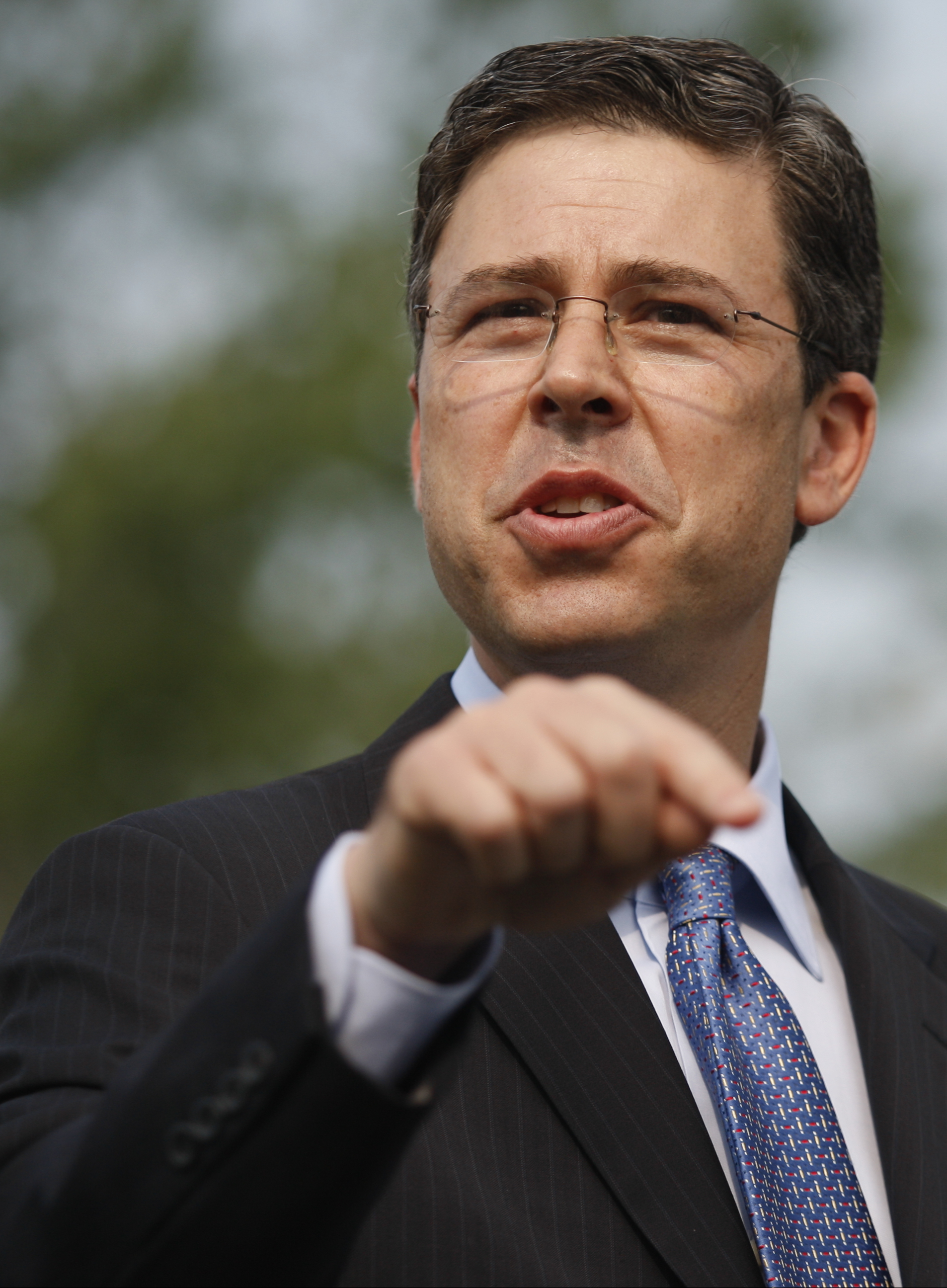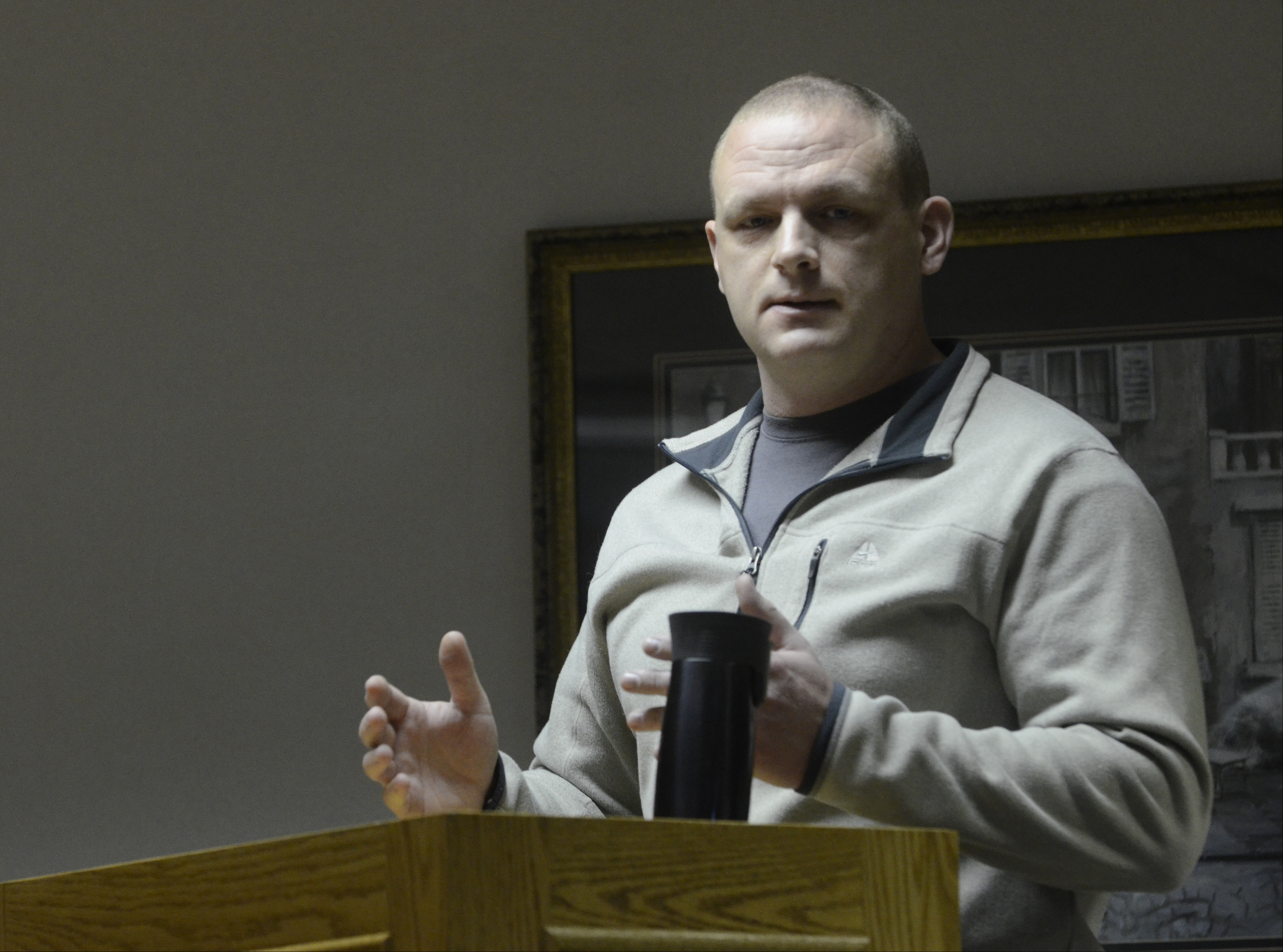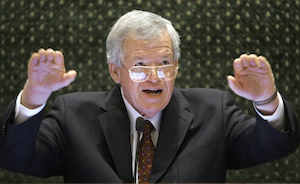Cities across Tennessee that are failing to keep up with annual required contributions to their employee retirement plans would have to do so within six years or face a penalty, under legislation proposed by state pension officials.
Failure to do so could trigger a reduction in their portion of state-shared taxes. The state would then use that money to ensure that the annual payments are funded at 100 percent.
At least 31 pension plans, including Chattanooga's General Employees pension and the city's Fire and Police Pension, would be affected by the proposal, which was unveiled Monday by state Treasurer David Lillard and legislators.
In Chattanooga, Mayor Andy Berke is weeks away from finalizing more than six months of negotiations to reform police officer and firefighter benefits in order to cut the city's $150 million unfunded liability to the Fire and Police Pension fund. The pension board was expected to vote this week on the reform recommended by Berke's 18-member task force, but the board delayed the vote by at least two weeks pending actuarial estimates.
Berke's chief of staff, Travis McDonough, asked Lillard last week to delay the announcement of the proposed pension reform, but the treasurer said he told McDonough that wasn't possible.
"They did ask that we consider delaying consideration of the report and all that," Lillard said. "I told him we were not in a position to do that at all. And he mentioned that they had the consensus arrangement that they've come to down there with the police and fire organizations down in Chattanooga."
McDonough said he asked for the delay because Chattanooga doesn't need Nashville to solve the city's problems.
"We don't need reforms imposed from Nashville when we've reached a solution here in Chattanooga," McDonough said. "We've been responsible and very focused on a fair set of reforms that solve our problems. We hope Nashville recognizes that."
Local union leaders, too, said there is concern that the state's bill could undermine all the work that went into the city's consensus plan, with both the city and employees compromising to reach a solution that will hike employee pension contributions by as much as 37 percent and cut cost-of-living adjustments for retirees. The plan is expected to save the city between $4 million and $5 million in contribution levels per year and as much as $200 million over 26 years.
"We're not looking for the state legislature to take care of what we can take care of here in-house," said Chattanooga Police Officer Sean O' Brien, the Fraternal Order of Police president. "I would have an initial concern that it would impact what we have been able to accomplish in Chattanooga."
But Chattanooga Fire and Police Pension Board officials said they see no need to panic because the city has historically made its annual required contribution to the pension fund.
"Based on information we know today, this legislation will likely have no effect for the Chattanooga Fire and Police Pension Fund," said Vince Butler, a pension board spokesman.
Lillard said his intention is not to interfere with Chattanooga's consensus agreement.
"I told [McDonough] it was not our intent to in any way impede that agreement from being finally approved," Lillard said.
Lillard presented his report and its findings and recommendations at a news conference and then later officially presented the report to the state's Council on Pensions and Retirement. Members review and make recommendations on bills related to retirement issues.
Chad Jenkins, deputy director of the Tennessee Municipal League which represents cities, watched as Lillard presented the report to the Pension Council, which delayed any recommendation for a week to give all sides opportunity to discuss the proposed changes.
"There's a couple of concerns that we have in terms of implementation of what he's proposed that we're talking to him about," said Jenkins.
The six-year deadline for cities making at least 100 percent of annual required contributions "may be too short" for some cities, Jenkins said. "It's hard and fast and then there's no flexibility in terms of that punishment."
All 31 cities that would be affected have pension plans that are not part of the Tennessee Consolidated Retirement System, which includes pensions for state employees, teachers and most cities and counties.
The issue of non-TCRS governmental entities being behind in pension obligations emerged last year and picked up speed in light of unfunded liabilities for the city of Memphis and Metro Nashville.
Memphis faces half-a-billion dollars in unfunded liability, while Nashville is looking at nearly $800 million. Chattanooga has the fourth-highest unfunded liability among the other municipalities in the state.
"Memphis is driving this," O'Brien said. "It's not our problem that Memphis ... can't figure out a solution."
Yet at least one lawmaker says he has concerns about the consensus agreement in Chattanooga.
Sen. Todd Gardenhire, R-Chattanooga, said he has a problem with Chattanooga's reform that sets an age requirement for officers and firefighters to receive retirement at 55 for new hires and 50 for non-vested employees.
"It's the safety issue with me," he said. "When you get in your 50s you don't move as fast as some guys who've snatched a purse or you're having to chase some guy in his 20s."
Gardenhire said he thinks Lillard's report "seems like a reasonable thing to do."
Contact staff writer Joy Lukachick at jlukachick@timesfreepress.com or 423-757-6659.
Contact staff writer Andy Sher at asher@timesfreepress.com or 615-255-0550.



